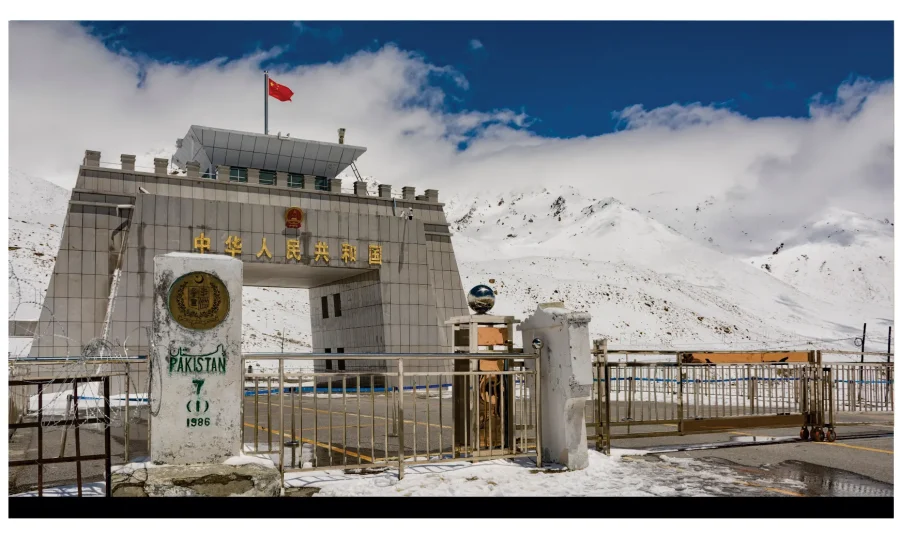The very important visit of Chinese Vice Foreign Minister Sun Weidong to Pakistan has further strengthened and pushed forward the trustworthy bilateral relationship between the two neighboring and friendly countries. The in-depth and candid engagements and discussions of the Chinese VFM during his visit to Pakistan have opened up new chapters of the bilateral relationship and the expansion of the China-Pakistan Economic Corridor (CPEC), developing it into a high-quality development project.
The visit of the Chinese Vice Foreign Minister also shows that China is willing to work with Pakistan to follow through on the important common understandings reached between the leaders of the two countries, deepen political mutual trust, expand practical cooperation, upgrade the CPEC and accelerate the building of a closer China-Pakistan community with a shared future in the new era.
The very successful visit carries very important highlights and the very significant one is that both nations have common understandings on the expansion of CPEC about the inclusion of third party in this working collaboration. China and Pakistan have reaffirmed their commitment to widen and deepen cooperation under the CPEC, with a focus on project expansion and third-party participation.
China’s Ministry of Foreign Affairs have also commented on this situation by stating that the two sides had in-depth discussions on the mode of third-party participation in the development of the CPEC. Both sides reaffirmed their commitment to ensure the safe and smooth progress of CPEC projects and they agreed to strengthen media cooperation, enhance think tank exchanges and continuously enrich cooperation in the CPEC’s development.
This development is a clear message that interest in investment in the CPEC by third parties could either be in the form of foreign governments or foreign enterprises. Pakistan and China are in discussion about third-party involvement, which means that many foreign enterprises and governments have expressed interest in joining this economic corridor, as many tangible benefits have transformed the socioeconomic landscape of Pakistan and much more will be generated in the next phase and decade of the CPEC.
Third-party inclusion will enhance and promote the outcomes of the CPEC in the next decade of development. It will also become a new impetus for the socioeconomic development of Pakistan and the region. CPEC is an open corridor and both Pakistan and China will welcome the inclusion of any third party.
CPEC has expanded industrial cooperation, promoted Pakistan’s industries from assembling imported parts and components to localized production of parts and encouraged various forms of Chinese enterprises to enter the Pakistan market to improve the development of energy-efficient industries in Pakistan.
The CPEC has promoted industrial capacity cooperation in sectors such as chemicals and pharmaceuticals, engineering goods, agriculture, light manufacturing and construction materials. The framework’s efficient, energy-saving and environmentally friendly processes and equipment help Pakistan expand into international markets.
The success of CPEC development has actually got the attention of the international community either in form of governments or enterprises as they want to be a part of CPEC development and to play their positive role in this process of development that is changing the socio-economic landscape of Pakistan and the region as well.
Till now, CPEC as a pilot project of the BRI, has brought a total of 29 billion US dollars in direct investment, 2,00,000 job opportunities, 510 kilometers of expressways, 8,000 megawatts of electricity, 886 kilometers of core transmission grids,fiber optical cable of 820 KM,1,296 KM track of ML-1 running from Karachi to Peshawar, construction of Gwadar port and Gwadar international airport and vocational training centers injecting strong momentum into Pakistan’s economic and social development, becoming a vivid symbol of China-Pakistan all-weather friendship.
The Kingdom of Saudi Arabia, a central hub connecting Asia, Africa and Europe, which has been a significant part of the Belt and Road Initiative, has also shown keen interest to play a key role in the development of CPEC. Meanwhile, the United Arab Emirates (UAE) being an important investor in Pakistan has also shown interest many times to play its important role for the development process of CPEC.
It shows that the brotherly countries of Pakistan and important allies of China in the Middle East have shown a huge confidence in the successful development process and they also want to contribute in this ongoing development process. Such investments by these two countries will also pave the way for other countries and international enterprises to explore the opportunities under the CPEC framework.
During Saudi Crown Prince Mohammad bin Salman’s visit to Pakistan in February 2019, an investment package worth $20 billion was announced, earmarking $10 billion for the construction of the mega oil refinery in Gwadar. This oil refinery will help Pakistan to act as an oil hub in the region and to reduce its import oil bill annually that will also eventually be beneficial for the Pakistani economy.
Pakistani officials assert that while Parco, with its current capacity of 100,000 barrels per day, is the largest oil refinery in Pakistan, a refinery with a capacity of 400,000 barrels per day is crucial to meet the country’s growing fuel demand. Presently, exports of crude oil from Saudi Arabia are required to fulfil Parco’s needs. Industry experts believe that if existing refineries increase their capacity to 400,000 barrels and an additional refinery is established with the same capacity, it will sufficiently meet the country’s fuel demand until 2040.
In the development of the 2nd decade of CPEC, the establishment of this oil refinery will be a game changer for Pakistan and the region as it will be a mega initiative to fulfill the needs of petroleum products for all. As the 2nd decade of BRI and CPEC is starting, the success stories of these mega initiatives are loud and clear that it is the ongoing development process that cannot be contained at all.










